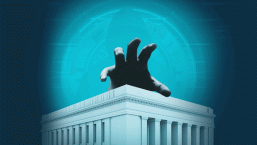Governments around the world are recruiting “cyber warriors” to fight against the growing threat of both cybercrime and state-sponsored attacks - but there aren’t enough experts to go round.
A report by the Reuters news agency said that forces such as the Pentagon’s Cyber Command and Britain’s new Joint Cyber Reserve have created a demand which cannot be met.
"As with anything, it really comes down to human capital and there simply isn't enough of it," says Chris Finan, White House director for cyber security from 2011-12, said in a Reuters report.
"They will choose where they work based on salary, lifestyle and the lack of an interfering bureaucracy and that makes it particularly hard to get them into government."
Government jobs are simply not attractive enough to lure trained professionals, a report by TechEye suggested.
The UK's Joint Cyber Reserve was set up to protect critical computer networks from attack - “if necessary, to strike in cyberspace,” Britain’s Defense Secretary Philip Hammond said, and will recruit from both military and private sectors.
The US Defense Department Cyber Command moved this year from “cyber defensive measures” into a “fully-operational Internet-era fighting force” with close to 5,000 troops and civilians at its disposal. The Cyber Command is recruiting 4,000 staff
Other countries such as Brazil and Indonesia have also announced new “cyber” divisions. Although many of these forces are military, many countries have announced that the divisions will work alongside private-sector companies.
A former White House official said earlier this year that governments needed to act, to prevent damage to the global economy.
"We have made cybersecurity one topic when it is many. Countries can’t see eye-to-eye on what is most important and what needs to be done first,” said Melissa Hathaway. Hathaway was Director of the Joint Interagency Cyber Task Force under George W Bush, and also worked for the Barack Obama administration.
“We need to start to talk about this as gross domestic product loss, and the instability of the financial institutions we are all dependent on as a global economy,” Hathaway said in an interview in Tel Aviv.
The problem, according to Reuters, is that the private sector often offers better salaries and working conditions. Government officials have said that budgets are to increase - but others complained that they are not increasing fast enough.
America’s President Barack Obama recently proposed to increase Defense Department spending on cyber security to $4.7 billion - a rise of $800 million.




